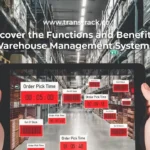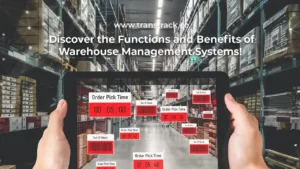Electric Buses, How Do They Work, Advantages, and Technological Developments?
Posted on December 15, 2023 by Nur Wachda Mihmidati

An Electric Buses is any bus whose drive system and accessories are powered exclusively by a zero-emission power source.
The power source can be onboard batteries, hydrogen fuel cells, overhead wires, such as trolley applications, or ground-based non-contact conductors. Any of these options can be augmented with recharging capabilities, through on-board mechanisms such as regenerative braking and solar panels or off-board chargers and battery storage banks.
In addition to pure electric buses, series or parallel hybrid electric and accessory load reduction systems provide more alternatives to traditional diesel-powered buses. Given the choices, integration challenges and costs involved, electric propulsion and power system manufacturers include application engineering support for their major bus manufacturer customers.
With concerns about the effects of air pollution on human health, the impact of climate change, the future cost and availability of fossil fuels, and even noise pollution, interest in more electrified transit systems and renewable energy alternatives to internal combustion engine buses will remain strong.
How Does an Electric Buses Work?
Electric buses work like electric cars. Electric Buses are connected to the power grid for charging, and store electricity in batteries (usually located on the roof). The battery powers the electric engine. Since an electric engine has fewer parts than an internal combustion engine, it requires less maintenance. When the battery runs out, the bus is recharged at a charging station (which takes an average of 4 hours with a 150 kW charger). Since buses operate on regular routes, scheduling a battery recharging schedule is a fairly straightforward planning exercise. Depending on the size of the bus and factors such as traffic conditions, a bus can travel an average of 200 km (124 miles) on a single charge during the first year of operation.
Electric buses take electricity from the power grid and store it in batteries that can be recharged once the electricity runs out. It basically mirrors the way our electronics work. We plug it in and let the battery charge and then use it wirelessly until it’s time to recharge.
The main difference between the Electric Bus and our cell phones and laptops is that the electrically charged batteries drive the electric motors in the bus. “The wheels on the bus go round and round,” thanks to this electric motor. More precisely, when the bus driver’s foot presses the gas pedal, the battery drives the motor, which drives the gears that turn the bus tires.
In traditional buses, the motor works in conjunction with the alternator, but the electric motor has the dual function of an alternator and a motor. This is possible because the AC signal voltage can be easily increased or decreased.
From the driver’s point of view, the Electric Bus functions basically like any other type of bus. There is no special way to operate it. Of course, when it’s time to refuel, the difference becomes obvious, but it’s a process that drivers quickly get used to.
Advantages of Electric Buses
If you’re considering an Electric Bus, you’ll want to know about the benefits of Electric Buses. Why should you consider an Electric Bus over more traditional options? There are advantages and disadvantages to consider with any type of bus – diesel, propane, gasoline, electric, or otherwise – so it’s always smart to compare these options and see which one best suits your needs. When it comes to electric buses, there are some valuable benefits to consider. Electric Buses are eco-friendly, quiet, low-maintenance, and affordable.
1. Environmentally Friendly
One of the main reasons to consider Electric Buses over other options is how environmentally friendly they are. Compared to combustion engines that use fuel such as diesel, electric vehicles will have minimal impact on the environment.
Environmental friendliness is also an advantage of hybrid Electric Buses, but hybrid buses still use fuel and, therefore, do not have zero emissions like Electric Buses. When your priority is to choose a bus that contributes to a healthier environment, Electric Bus is the right choice.
2. Quiet Operation
One thing you might notice the first time you drive or ride an Electric Bus is how quiet it is. Electric Buses operate much more quietly than other types of buses with internal combustion engines. This has always been a nice feature of electric vehicles, especially being a great advantage when it comes to bus vehicles.
Bus drivers with Electric Buses are better able to hear what is happening in the seats behind them. This can help drivers feel more in control and can increase the level of accountability among passengers. Quieter operation can also help drivers maintain better focus on the road.
3. Minimal Maintenance
Another major advantage of Electric Buses is how little maintenance they require. Many of the maintenance tasks required with diesel or gas powered buses are not required with electric buses. When performing maintenance on an Electric Bus, you can eliminate:
Advantages of Electric Buses
- Engine oil change
- Engine air filter replacement
- Smoke testing
- Replacing coils or spark plugs
- Transmission maintenance
Also, you don’t need to change the coolant as often, and you can get a longer service life from the brake pads. Overall, electric vehicles are very low maintenance compared to other vehicles. Fewer maintenance needs can translate directly into cost savings. It also means the buses in your fleet can stay on the road and don’t need to be out of commission at the auto repair shop as often.
4. Affordability
Some companies may be reluctant to purchase Electric Buses because they are more expensive than other bus models. These Electric Buses do require a larger upfront investment, but they can also save you money over time. Electric Buses save money by minimizing maintenance costs and eliminating fuel costs.
These cost savings can add up to around $39,000 per year, which is more than enough to cover the additional cost of an electric vehicle over the life of the bus. You can also offset the cost with government subsidies, tax breaks and grants from your electricity supply company. Now is the perfect time to buy an electric vehicle as you can benefit from these financial incentives.
[display-post-read-also]
Electric Bus Development in Indonesia
Indonesia plans to operate electric-powered public transit buses by 2030. The country continues to target net zero emissions as a consistent and sustainable climate change mitigation effort.
One of them is by electrifying the entire transport fleet which is part of Indonesia’s National Program to support this commitment. In addition, the transformation from individual transportation to mass transportation is also one of the things discussed to realize the program.
Therefore, Director of Road Transport of the Ministry of Transportation Risal Wasal said that by 2030, 90 percent of urban mass transportation in Indonesia will run entirely on electricity.
To support the program, the government is encouraging the implementation of Electric Bus this year. Outside Jakarta, the implementation will be adjusted to the intervention of the Central Government or Local Government in developing electric public transport with the Buy The Service (BTS) program scheme, such as the Teman Bus program.
The implementation of Electric Bus will be adjusted to various specifications and analysis methods that have been delivered by Vinensia Nanlohy, a representative of the Indonesian Institute for Transportation and Development Policy (IDTP).
In addition, there is also Electric Bus UI which is the result of the design and production of the nation’s children born from the idea of a researcher from the Faculty of Engineering, University of Indonesia (FTUI). In the near future, the UI electric bus will be one of the local electric vehicles operating during the Indonesian G20 Presidency as a form of UI support for Indonesia as the host. Electric Bus UI is a collaboration with PT Mobil Anak Bangsa (MAB). Where PT MAB acts as a domestic industry player and takes almost three years in the production process.
And also, the Electric Bus Merah Putih which was officially launched by the Indonesian Minister of Education, Culture, Research and Technology (Mendikbudristek) Nadiem Anwar Makarim together with the Indonesian Minister of Transportation Budi Karya Sumadi for the G20 Summit (Summit) in Denpasar.
Electric Bus Cost
The cost of purchasing and operating battery-powered buses and tricycles has decreased significantly, following various government incentives aimed at increasing the acceptance of these vehicles for public transportation.
Electric buses can replace Transjakarta buses, said Mobil Anak Bangsa (MAB) President Director Leonard. Electric-powered buses are claimed to be more efficient and save electricity compared to oil-powered buses.
Based on current tariffs, Electric Bus fares are only Rp 800 per kilometer. While oil-fueled buses cost around Rp2,000 per kilometer.
Electric buses certainly require electrical technology that supports their operation. Well, the TransTRACK product itself can also be used in this electric bus type. Each product has been designed and compatible with electric vehicles, both cars and trucks. Start using TransTRACK products and improve your driving experience for the better and safer!
Recent Post
Topic :
busesfleet managementvehicle type
 Bahasa Indonesia
Bahasa Indonesia









